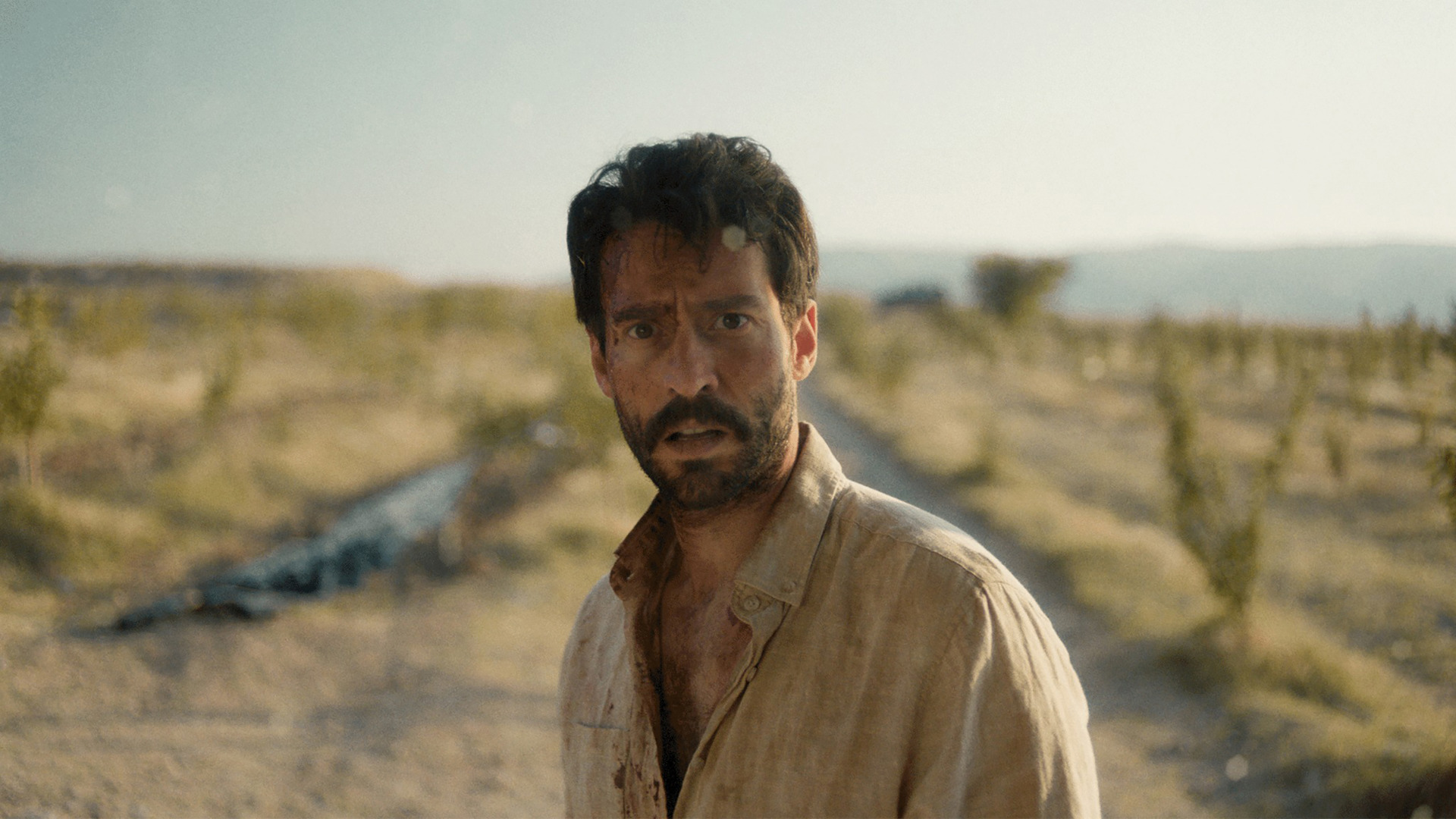
Eileen, Iranian writer/director Alireza Khatami would like a word. Drowning under the excess of religious hegemony and patriarchal excess, Khatami’s nightmarish, disorienting The Things You Kill is as much about killing off the parts of ourselves as it is about the persons in our lives who exist solely as living, breathing reminders of society’s perennial sins. You don’t need therapy – just fight your dad instead.
therapy is not enough. i need to fight my dad
— megan (@chismosavirus) April 7, 2022
Ali (Ekin Koç) is chained to a world that fundamentally has no use for him. Almost existentially, forces beyond his own are guiding the end of his progeny. He’s sterile, a tidbit he recurrently keeps from his younger veterinarian wife (Hazar Ergüçlü), and the forthcoming severance of his translation teaching gig is an ominous sign for worse nightmares to come. The values of literature aren’t needed anymore. Ali’s terrible, no good, very bad day is tightened with the same moral porridge that rendered 2023 Sundance sleeper hit Eileen such a success.

His mother is a prisoner in both a literal and figurative sense. Health issues render her all but immobile, and her habitations are falling apart. Ali’s father, Hamit (Ercan Kesal, an all-time terrible movie dad), orbits around the emasculation of his son and the confinement of his wife. Ali’s offer to fund some plumbing work in his parents’ house to better meet his mother’s needs quickly implodes, spiraling into long-gestating resentment and disappointment. At one point, Hamit remarks, “What did I do that Allah gave me such a son?”
Khatami’s endgame is consciously signposted. Ali’s mother passes away. The death is forensically incompatible with the story Ali heard, the circumstances of which are rendered all the more incredulous as Ali hears from his sisters, Meriem (Idil Engindeniz) and Nesrin (Selen Kurtaran), just how common it was for Hamit to savagely beat his wife. Ali stays incredulous. No one within his familial orbit seems nearly as concerned. Mid-movie, it’s suggested Hamit apologized for the worst of the violence. Ali explodes. “He sought forgiveness from a semi-paralyzed woman with nowhere to go.”
The introduction of an unpredictable gardener (Erkan Kolçak Köstendil) upends expectations. Narratively faithful to what’s come before, Khatami’s interrogation of violence as bedrock goes full De Palma and John Woo, with sprinkles of the late David Lynch, namely his unsung masterpiece Lost Highway.

Nesrin, at their mother’s grave, laments how “Agony seems reserved solely for women,” and Khatami’s horror-adjacent descent into body-swaps and surrealism is very much a women’s game played exclusively by men. Ali, as his father’s son, bears the weight of his mother’s death alone, though he too, in endeavoring to right decades-long wrongs, concedes to violence and brute force to equalize a system long since broken.
Cinematographer Bartosz Swiniarski shifts the camera in and out of focus, disorienting the viewer, trapping them in a kind of lurid, lucid dreamscape where the question of reality matters less than the question of duty. For all Ali’s posturing, he’s just another man. A man making decisions and imposing that will on those around him. Right or wrong, is it really his decision to make? Does the consequence of ceaseless cycles of violence justify the means by which Ali endeavors to enact his revenge?
It’s hard to say. Khatami’s The Things You Kill is a nightmare, not a therapy session. A slow-burn descent that marries quiet character study with phantasmagorical rot. There might not be any fixing it. You can run away or remain put, but the violence catches up to us all. The Things You Kill is uneasy, uncommonly restrained, and horrifying in its implications. We can kill off the worst parts of ourselves, but odds are, they’ll simply be reborn elsewhere.
Summary
The Things You Kill is a subversive dreamscape of revenge, violence, and the patriarchy.

